How to Add Screen Mirroring Devices to Roku
How to use screen mirroring on Roku
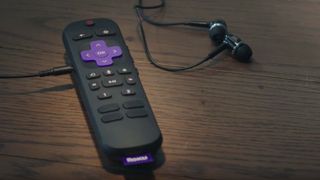
Our complete guide for to use screen mirroring on Roku takes a valuable (but slightly hidden) feature and makes it easier to use. But before you start, it's worth first considering when to use screen mirroring, and when not to.
For those who have never tried it before, screen mirroring on Roku lets you broadcast whatever is on your Android device or Windows PC onto your TV, using your Roku device as a receiver.
Most Roku devices have screen mirroring capabilities, and the procedure is the same whether you're using a cheap Roku Express or a premium Roku Ultra.
- Also consider the best streaming devices
- The 63 best Netflix shows and TV series
- Plus: Roku is better than Fire TV — here's why
For those who want to get technical about screen mirroring on Roku, the protocol that allows this feature is called Miracast, and almost every modern Windows PC and Android devices has access to it. (Apple devices don't, although they have a similar screen mirroring option called AirPlay.)
Screen mirroring is generally not the best way to consume media on a Roku, since its built-in apps are much more intuitive. Even if you have your own content, you can simply use a media server like Plex, or Roku's own built-in media player. But screen mirroring can be useful if you need to display something that doesn't fit neatly into a multimedia app, or if you don't have an Internet connection.
One last thing to note is that screen mirroring is an iffy proposition at the best of times, so don't be discouraged if the process doesn't work as smoothly as you think it should.
- Bag yourself the best Roku VPN to access global content
Before you start, you'll want to make sure that your Roku device is up and running, as well as fully updated. It doesn't have to be connected to the Internet, although doing so wouldn't hurt. You should also make sure that your Android device or Windows PC is fully updated. An Internet connection isn't necessary, although you may as well get connected, if you have the ability to do so.
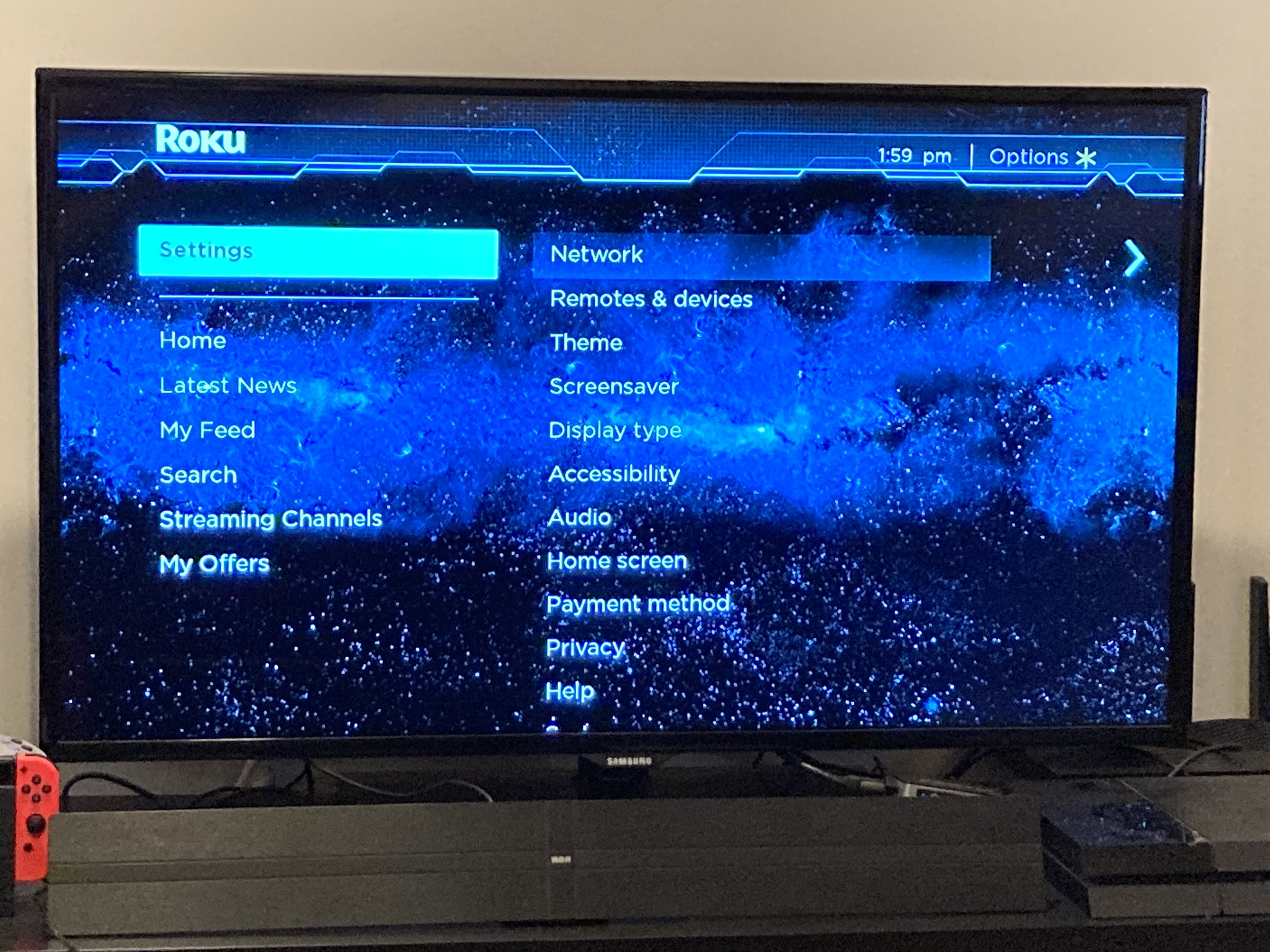
In case you haven't played around in the Roku's settings menu before, doing so isn't hard. Simply scroll down on the home screen menu until you see the Settings option.
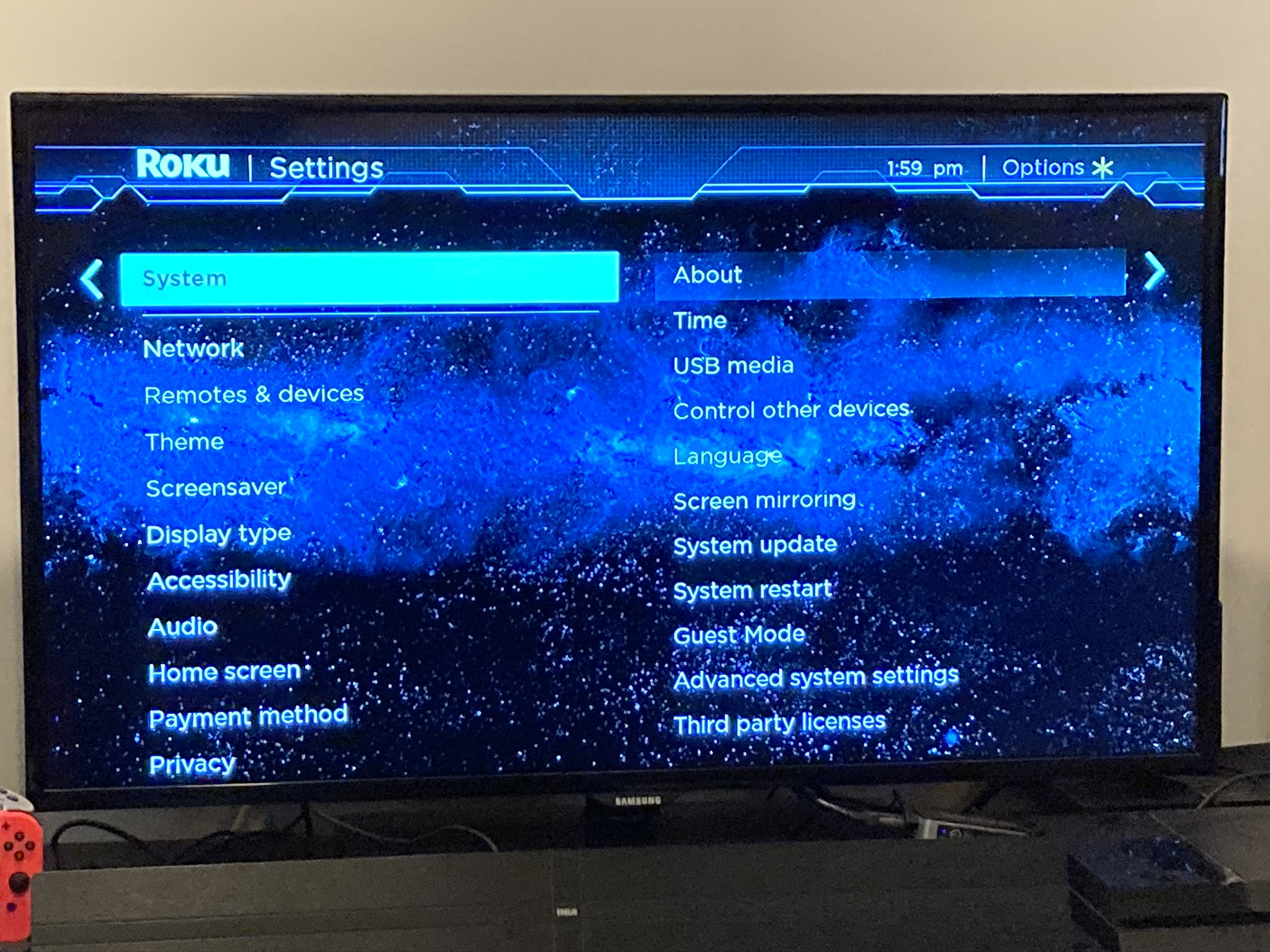
2. Select the System option
The System sub-menu is where you can toy around with any Roku settings that aren't tied to a specific functionality (audio or video quality, payment options and so forth). It's worth seeing what options you have at your disposal, if you've never spent any time here before.
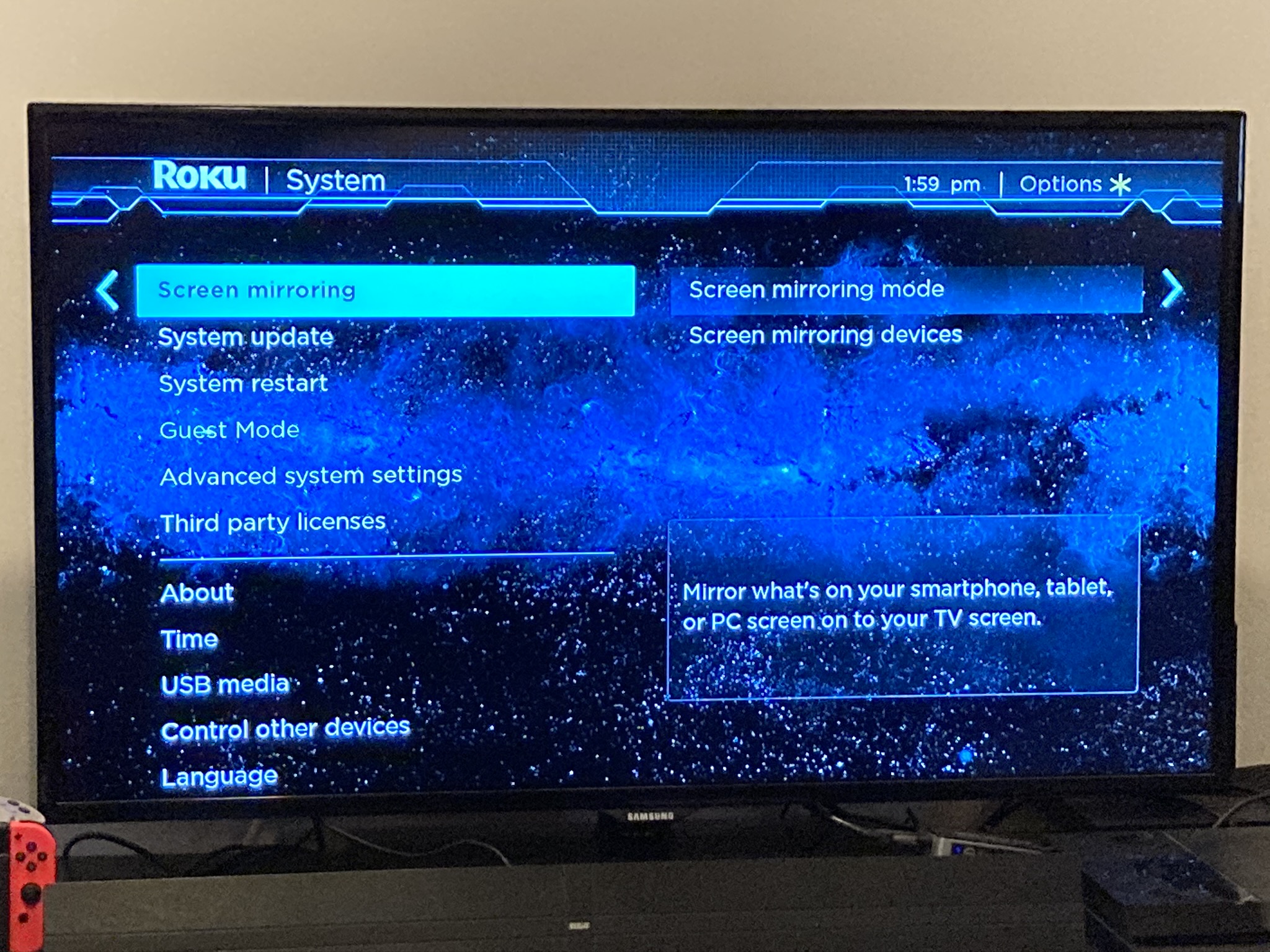
3. Access the Screen Mirroring section
This step is pretty self-explanatory, although if you haven't done a system update in a while, that option is just one step below Screen Mirroring.
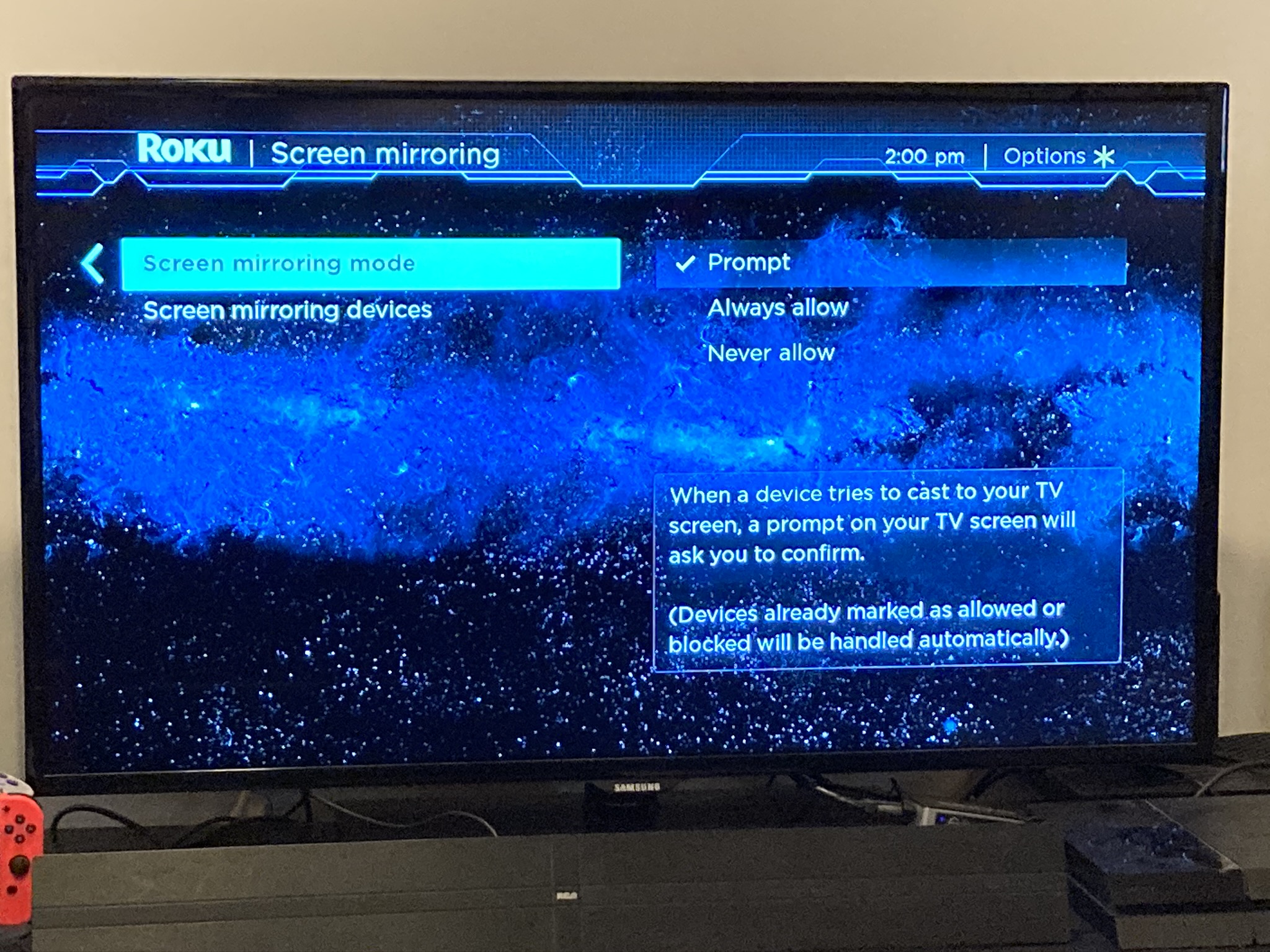
4. Set up your Screen Mirroring preferences
Roku gives you three options for screen mirroring, all of which are pretty self-explanatory. "Prompt" means that the Roku will notify you each time a device attempts to use the Roku as a screen-mirroring receiver. This is a solid option, since it lets you screen mirror, but also prevents unauthorized access.
"Always allow" might be good if you live by yourself (and far from neighbors), and "never allow" might be good if you know for a fact that you'll never want to use the screen mirroring feature. Otherwise, I'd go with "Prompt."
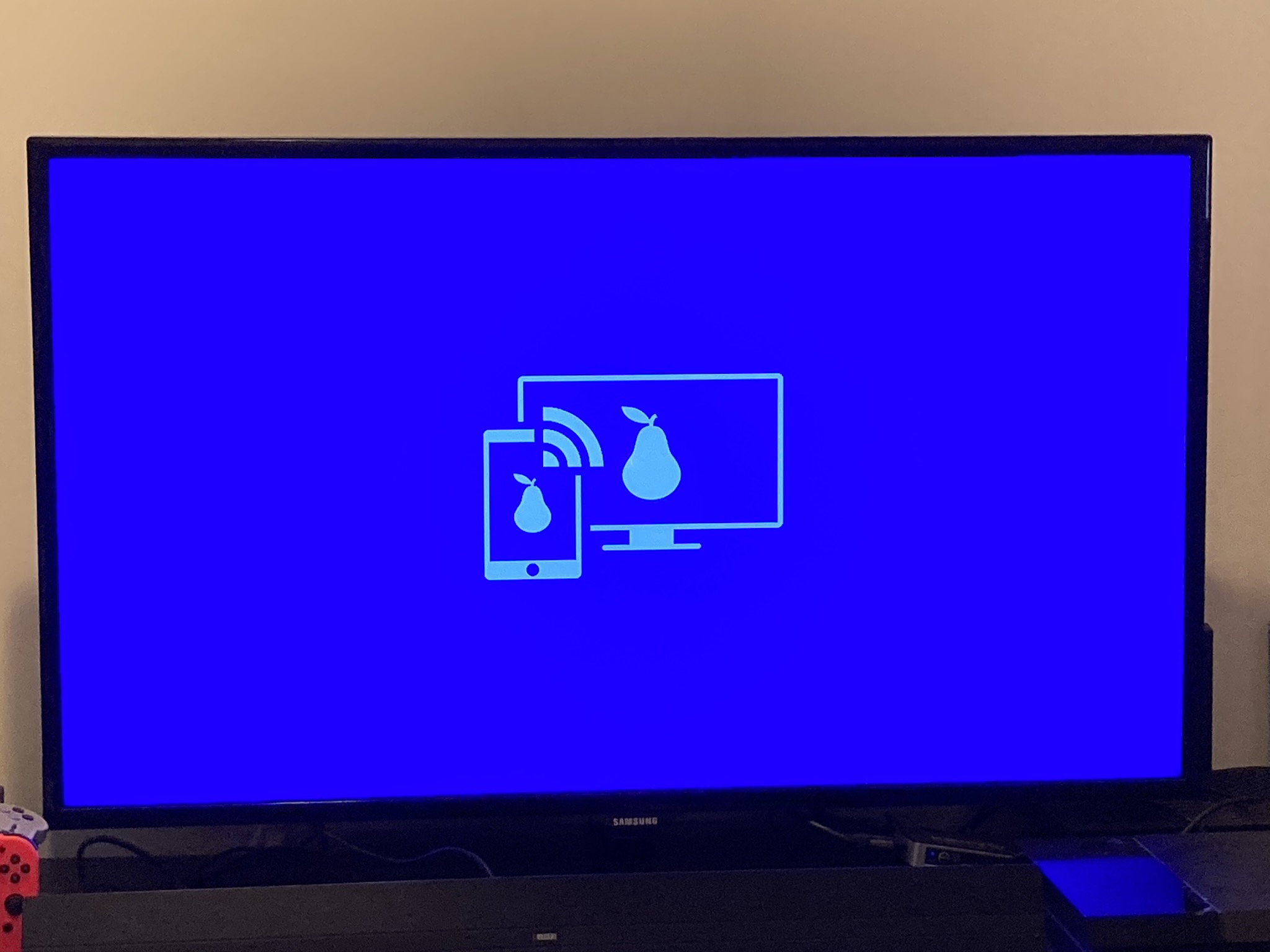
5. Connect your device
Unfortunately, this is the one step for which I can't give specific instructions. Every smartphone and PC works slightly differently when it comes to screen mirroring. I can say that in general, Android devices have a "cast" option somewhere in the display menu, while Windows PCs have the "connect to a wireless display" option in Display Settings.
If you do a Google search for "[your device name] screen mirroring," you should find the resources you need. In any case, activate your device's screen mirroring, then watch what happens on the TV.
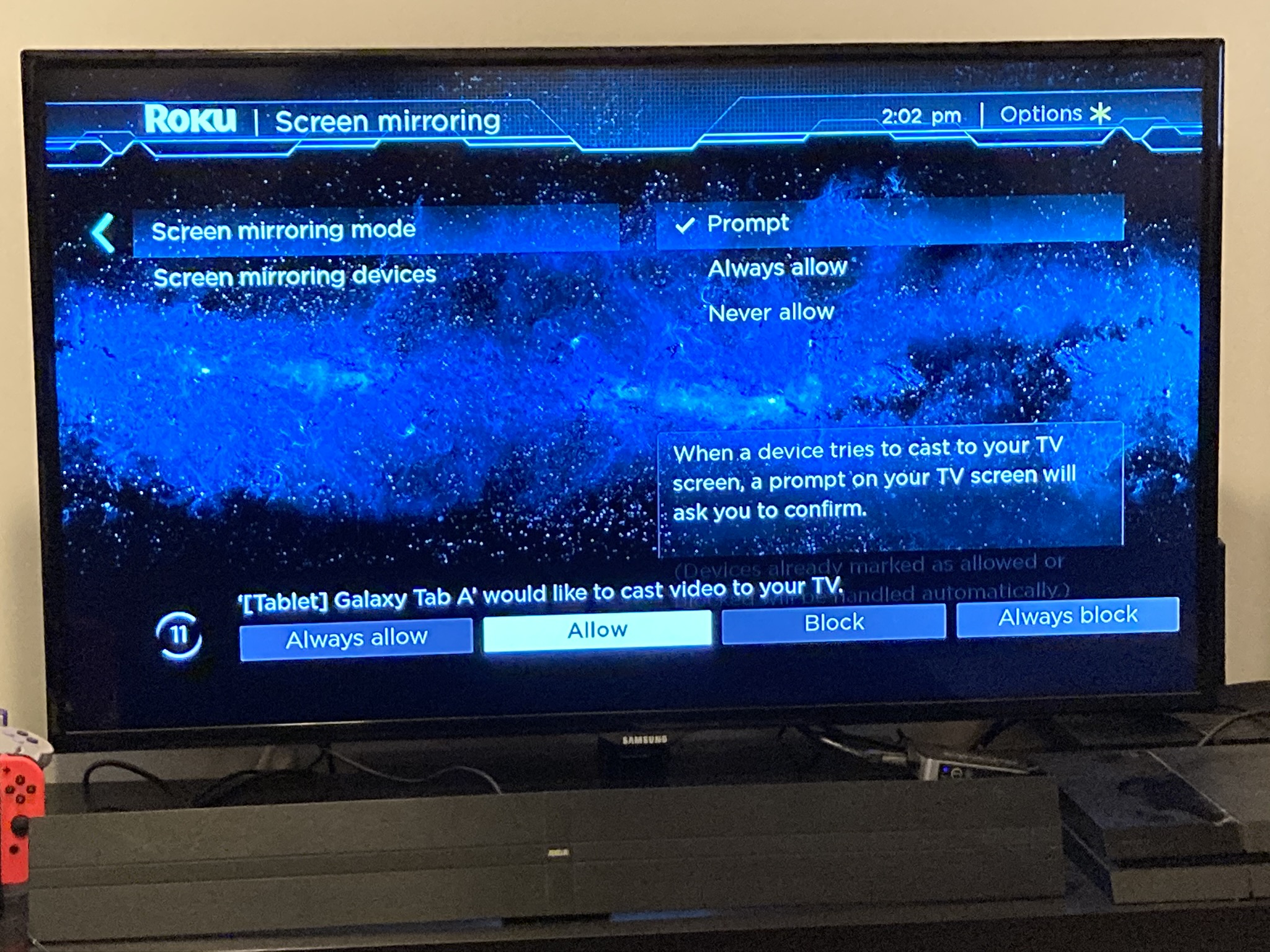
6. Accept the screen mirroring request (if necessary)
If you set your screen mirroring preferences to "Always allow," you can skip this step. Otherwise, you'll have to accept your device's pairing request. The options here are all straightforward: "Always allow," "Allow," "Block" and "Always Block."
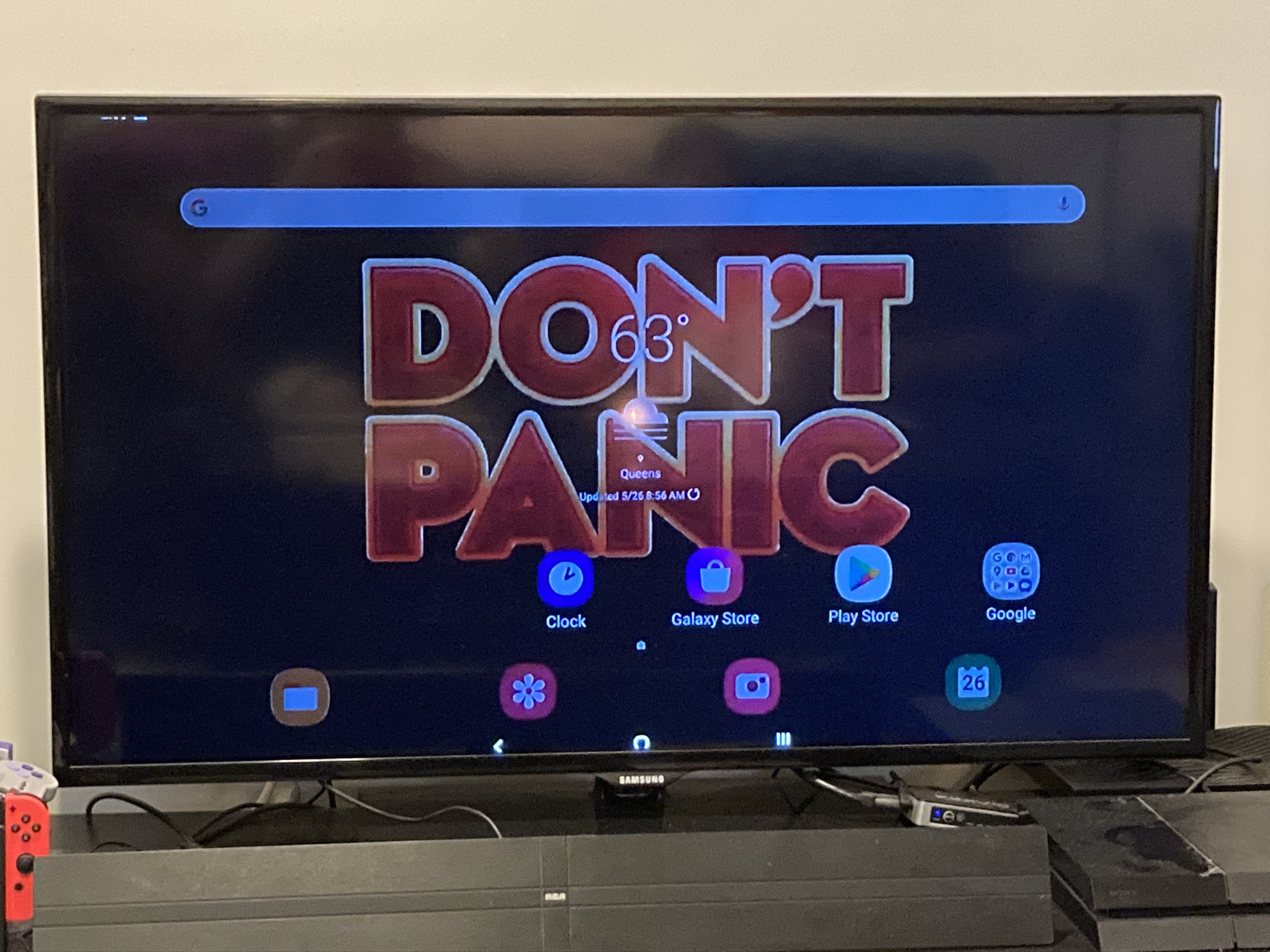
7. Use your device normally
Once your Roku accepts the screen mirroring request, you're good to go. You can use your tablet, smartphone or PC normally, with every action you take mirrored on your TV screen. You may find this useful or totally needless, depending on your media habits, but it's nice to have the option.
Just bear in mind that your source device may not have the same resolution as your TV, which could lead to some picture oddities. Newer mobile devices will give you the option to change resolution automatically; otherwise, you can often change resolutions manually either on your device or on your TV. This is another situation in which options can vary considerably depending on your device, so Google is your friend if you run into trouble.
- How to clear your Roku cache
- Up next: How to use Roku — tips, tricks and solutions for streaming

Marshall Honorof is a senior editor for Tom's Guide, overseeing the site's coverage of gaming hardware and software. He comes from a science writing background, having studied paleomammalogy, biological anthropology, and the history of science and technology. After hours, you can find him practicing taekwondo or doing deep dives on classic sci-fi.
How to Add Screen Mirroring Devices to Roku
Source: https://www.tomsguide.com/us/roku-screen-mirroring-tutorial,review-3575.html
0 Response to "How to Add Screen Mirroring Devices to Roku"
Post a Comment